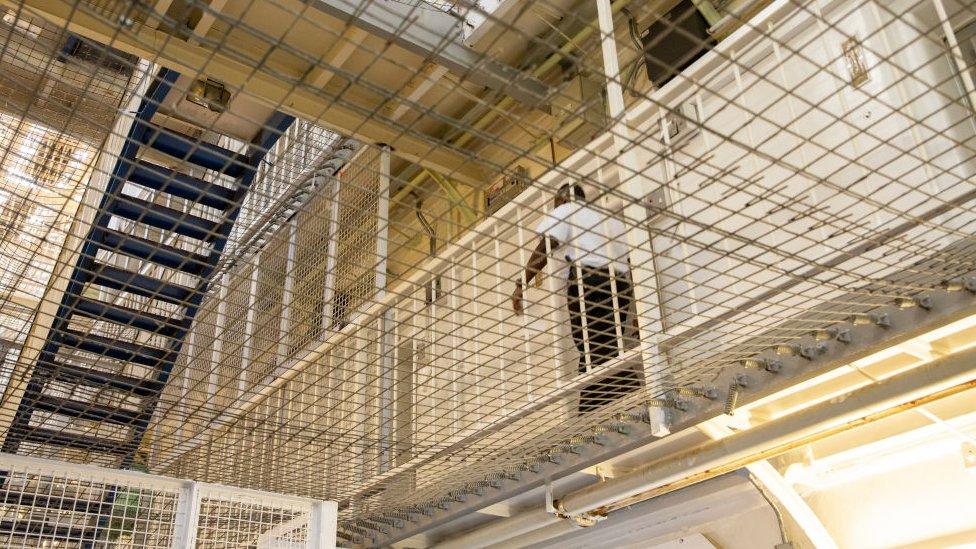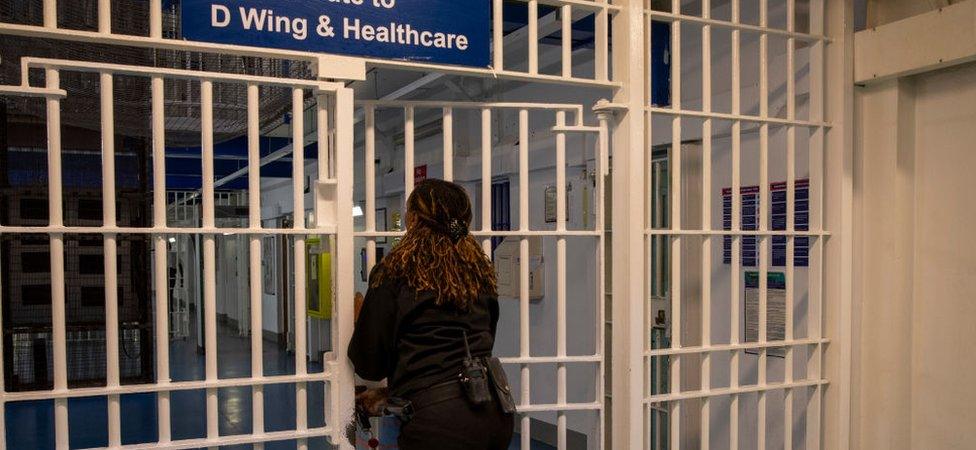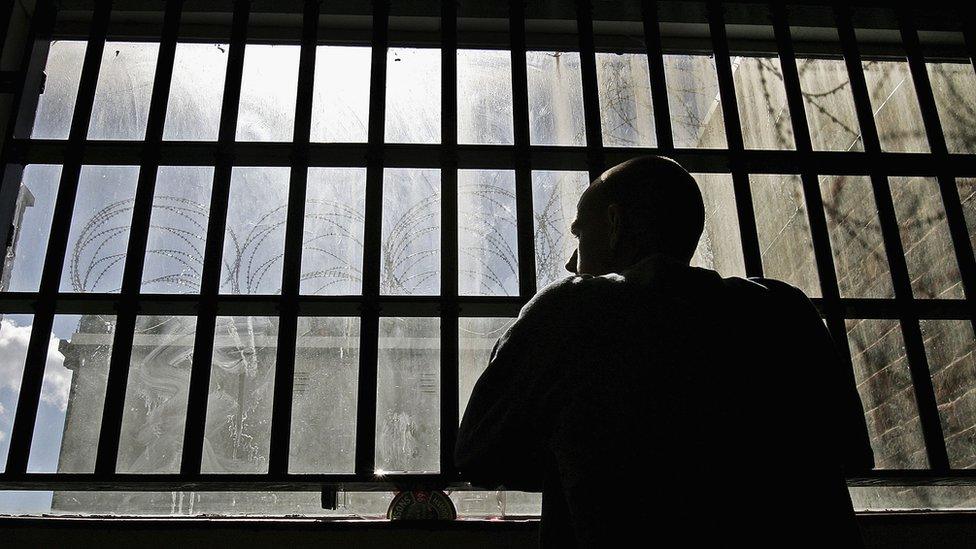Coronavirus: Almost a quarter of Scottish prison staff absent from work
- Published

Almost a quarter of Scottish Prison Service (SPS) staff are currently absent from work amid the coronavirus outbreak, BBC Scotland has learned.
The Prison Officers' Association Scotland (POA) said the figures were "enormous" and putting a major strain on the overall operation.
The SPS said it was working with the government and other organisations to manage the "unprecedented challenges".
It has suspended some activities to reduce the risk of the virus spreading.
Justice Secretary Humza Yousaf said the figures were alarming and the emergency release of short term prisoners may help.
On Monday, the SPS said 110 prisoners over 11 sites were self-isolating. At that time, two had tested positive for Covid-19.
More than 4,000 people are currently employed by the SPS.
It is understood the absences include staff on maternity leave and those on usual sick leave.
Phil Fairlie, national chairman of the Prison Officers' Association in Scotland, said: "Staffing levels have been dramatically reduced. Large numbers of staff are self-isolating. We have an enormous number of staff who are not available to attend the prison on a day-to-day basis.
"It is having a significant impact in terms of what we are able to do.
"I think we are getting close to about 25% of the staff being unavailable in any given day. We are moving to a single day shift next week to try and accommodate the delivery of the regime".
'Unprecedented challenges'
It has emerged that Holyrood's justice committee has written to both the justice secretary and the SPS, raising the concerns of three officers at three different sites.
They point to the lack of availability of PPE for staff and concerns about staff shortages. One officer also says a staff member has tested positive for Covid-19.
Mr Yousaf told BBC Scotland: "This is very actively being looked at. We are looking at the numbers, particularly short term prisoners that have been given a sentence of a year or less and are in the last three months of their sentence."
Asked if the military may be asked to help, he replied: "I do not envisage the army or soldiers having to step into our prisons."

Prison officers' concerns

Officer A
has no PPE and is in close contact with prisoners who can be violent on a daily basis so officers have to intervene. They are worried they will contract the virus due to this close contact.
Officer B
Three officers are looking after more than 70 prisoners, with no PPE, just gloves.
Prisoners are not social distancing, especially in common spaces such as exercise yards which can see in excess of 100 prisoners sharing vapes, and shaking hands.
The SPS has told them they do not have to search prisoners which they feel is dangerous.
Some prisoners are in the high risk group for coronavirus.
They are concerned that they have been in close contact with two prisoners who were removed from jail after showing symptoms of the virus.
They question why prison staff are not classed as key workers - lack of recognition is impacting on morale.
Officer C
Social distancing measures not being implemented.
Staff have to take six or more prisoners for exercise, showers or to use the phones.
They have needed to intervene in some circumstances, bringing them into close contact with prisoners.
They have waited weeks for hand sanitiser which has now arrived, but with no way to distribute it across the prison.
They are worried about the safety of their partner who is in the high-risk group.
They say a member of staff at their prison has tested positive for the virus.

Virus spreading
A Scottish Prison Service spokeswoman said the safety and wellbeing of those living and working in its prisons was a priority.
She said: "Covid-19 is impacting across all public services, including the prison system and the SPS has been considering all necessary steps which we could take to reduce the risk of the virus spreading."
The spokeswoman said the SPS had temporarily suspended a significant number of activities, including all non-essential work, and had stopped communal dining, large group physical activity in prison gyms and education provision.
She also said the SPS had secured a sufficient supply of personal protection equipment (PPE) and was actively working to increase its supplies.
The slowing down of court business was already having an impact on reducing prison populations, she said.
Mr Fairlie, from the POA, earlier told BBC Radio's Good Morning Scotland programme that more testing of prisoner officers should be carried out and that the introduction of early release for prisoners would be a big step forward.
"It will create the opportunity to do social distancing a lot better," he said. "It will allow us to consider single-cell accommodation for the whole of the prisoner groups - that in itself would be a really welcome step in terms of controlling the virus."
- Published27 March 2020
